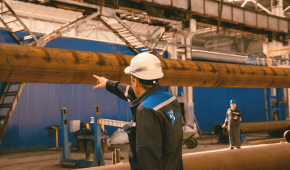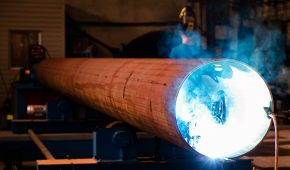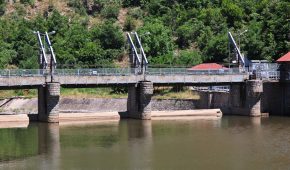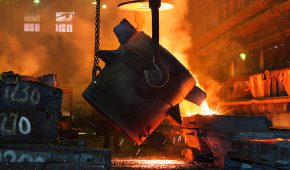Classification of steel pipes due to their application
Steel pipes are a very important part of the operation of practically all industrial plants. Due to their specifications, they are used in various fields of industry. Steel pipes have a wide range of applications. They can be divided according to shapes and types.
Steel is a very strong and durable material that provides adequate strength and resistance to all kinds of deformations and leakage of pipes. Due to the technological diversity of steel pipes, they can be divided into three basic types: steel pipes with seam, galvanized pipes and seamless steel pipes.
Construction pipes
Structural steel pipes are divided into two groups: seamed and seamless. Welded pipes are produced by coiling steel sheets and welding them. They can be of a very large diameter, they are most often used in the construction of industrial networks.
Seamless structural pipes are made of the ingot. The precision of the sleeve is obtained by heating and punching holes in its interior. The material used for the production of seamless steel construction pipes affects the strength, durability and production technologies.
Pressure pipes
Steel pressure pipes are used as an element of pressure and thermal equipment. They are used at ambient temperatures. Pressure steel pipes are used in all industries. They can be used universally due to their dimensions and variety of steel pressure pipes. They are hot-rolled and cold-drawn.
Pressure pipes are produced in diameters from 21.3 mm to 660.0 mm and wall thicknesses up to 100.0 mm as hot rolled. Cold-drawn pressure pipes are made in diameters from 10.2 mm to 108.0 mm and with wall thicknesses of up to 12.5 mm.
Thick-walled pipes
Thick-walled steel pipes are characterized by the highest resistance. Thick-walled steel pipes are usually available in diameters from 60.3 mm to 812.0 mm, and the wall thickness ranges from 6.3 mm to 100.0 mm. Thick-walled steel pipes are most often used in gas and power installations.
Thick-walled pipes are also used in heating structures due to their incredibly high strength. Thick-walled steel pipes are resistant to corrosion, which makes them suitable for places with high humidity. Steel thick-walled pipes are the safest option for use in various types of installations and machines.
Boiler pipes
Steel boiler pipes are most often used to ensure the long-term and safe and trouble-free operation of modern energy devices. Steel boiler pipes are made from unalloyed and alloyed steels with specific properties at elevated temperatures. The diameters of steel boiler pipes range from 17.2 mm to 610.0 mm, and the wall thickness of steel boiler pipes is measured from 1.8 mm to 50.0 mm.
Precision pipes
Precision steel pipes are divided into cold-drawn and hot-rolled. Cold-drawn pipes are usually in dimensions: diameter from 6.0 mm to 133.0 mm, and wall thickness from 1.0 mm to 10.0 mm. Cold-drawn pipes are mainly used in the hydraulic, automotive and mechanical industries. Hot rolled pipes are available in dimensions: diameter from 21.3 mm to 508.0 mm, and wall thickness from 2.0 mm to 60.0 mm. Hot-rolled pipes are used in the engineering and pressure industries.
Precision steel pipes are divided into cold-drawn and hot-rolled. Cold-drawn pipes are usually in dimensions: diameter from 6.0 mm to 133.0 mm, and wall thickness from 1.0 mm to 10.0 mm. Cold-drawn pipes are mainly used in the hydraulic, automotive and mechanical industries. Hot rolled pipes are available in dimensions: diameter from 21.3 mm to 508.0 mm, and wall thickness from 2.0 mm to 60.0 mm. Hot-rolled pipes are used in the engineering and pressure industries.
Line pipes
Steel line pipes can be divided according to their characteristics. The parameters of steel line pipes can be classified according to shape, cross-section, pipe end design, range of acceptance tests, method of manufacture, manufacturing accuracy, the intended use of the steel grades from which they are made and surface quality and types of protective coatings.
Steel line pipes are designed to create pipelines: steam, water, gas, air, oil and similar. Steel line pipes are also used in coal mining. Steel line pipes are used for the construction of pipelines, transport of liquids, gases and other mixtures as well as for the transport of solids such as ashes, fruits, and sludge from sewage treatment plants. Steel line pipes are always subject to tightness control of the so-called water test. The weldability of the pipes is ensured through the proper selection of steel grades.




